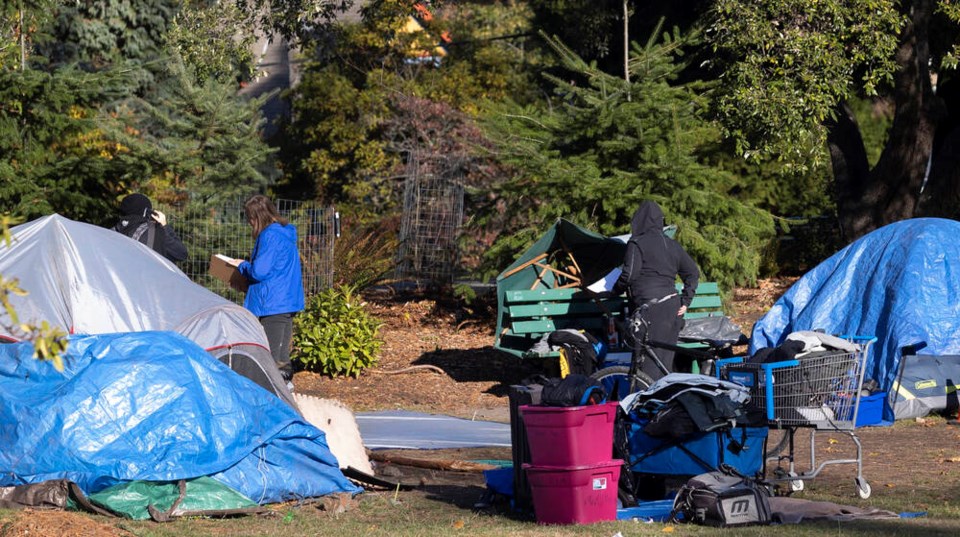A commentary by two Victoria city councillors. It does not reflect the official views of city council as a whole.
In Victoria, homelessness and sheltering in parks and on the street is a humanitarian disaster and community safety crisis for all residents, both housed and unhoused.
The province is building supportive housing at a rapid pace, which is a formidable task, but we also need immediate interim action to return parks to their originally intended purpose and reduce the disorder we witness on our streets.
Homelessness is a crisis requiring an urgent response. Every night in Victoria, hundreds of people sleep rough outside, and more than a thousand more sleep in shelters, vehicles, or other insecure sleeping arrangements.
Unsheltered homelessness grew visibly in 2020 when the capacity of indoor shelters was cut in half to accommodate social distancing measures to limit the spread of COVID-19.
People were pushed out of shelters onto the streets and into parks. Even though the pandemic has begun to wane, we are still dealing with its after-effects.
Another complication involves case law in B.C. which prohibits municipalities from completely prohibiting sheltering in all parks if the demand for indoor sheltering exceeds supply, as it almost always does.
Two court cases — Victoria v. Adams and Bamberger. v. Vancouver — have created powerful precedents that supersede municipal jurisdiction.
While it is our intention to decrease sheltering in parks, as evidenced by recent motions related to Topaz Park, Stadacona Park, Regatta Point Park, and Hollywood Park, the city cannot completely prohibit sheltering at this time.
However, what we can do is actively transition away from this practice, while holding ourselves accountable and ensuring that everyone sheltering in a park is offered a better situation.
Council recently voted to hire a parks relocation co-ordinator to oversee this work for the aforementioned parks which are set to prohibit overnight sheltering at all times starting on Nov. 1, subject to offers of housing or better sheltering options.
We need to avoid shuffling people around and instead work proactively to improve people’s lives by connecting unhoused folks to B.C. Housing and service providers funded by the province.
We need to end this untenable situation for both the unhoused and the housed neighbours surrounding these parks.
Research shows that interim sheltering sites, such as Tiny Town beside Royal Athletic Park, generated far fewer police calls when compared to parks and streets where sheltering existed.
Municipalities alone do not have the financial capacity to take on this kind of initiative without the support of other levels of government. We are committed to doing our part, but we cannot do it alone.
We need Island Health, the Capital Regional District, and the provincial and federal governments to work with us to create safe interim sheltering options until enough units of affordable and supportive housing become available throughout the region.
In Duncan, where there was once a tent city, there is now a village of 34 cabins with 24/7 support services including effective security measures. It is having a positive impact on the community.
Of the residents at “The Village,” 80 per cent are participating in a Work B.C. peer-to-peer pilot program doing outreach for other unhoused people still sleeping rough on Duncan’s streets.
Neighbours living within a 150-metre radius of the site were initially opposed to The Village, but once it was established the pushback stopped and some have become active volunteers.
According to the RCMP, there has been an 18 per cent reduction in crime in the neighbourhood which is attributed to the success of The Village.
When it comes to issues of community safety, policing will always be needed to address the criminal element that embeds itself within unhoused communities.
However, for those who require access to social services, being sheltered in a well-run supportive community will allow them to stabilize, get assessed and triaged, so that they are able to take the next steps in their lives.
The transition from parks to interim sheltering will make this possible and improve community safety for us all.
>>> To comment on this article, write a letter to the editor: [email protected]



